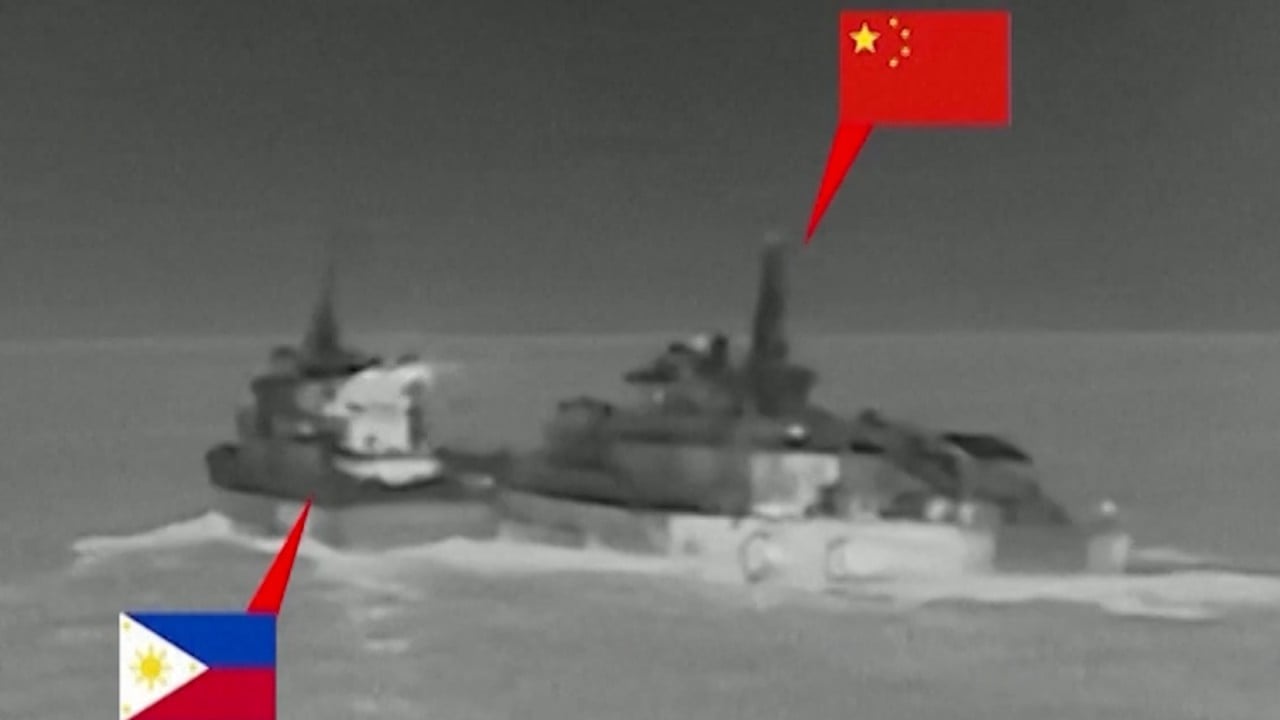US assures Manila of support after PLA vessel's 'deliberate collision ...
US National Security Adviser Jake Sullivan on Tuesday condemned China’s “deliberate collision” with two Philippine coastguard vessels this week near the disputed Sabina Shoal during a call with his counterpart in Manila, and cited “continued historic momentum” in the US-Philippine relationship.

Sullivan and Eduardo M. Año also discussed the recently announced US$500 million in American foreign military financing under the Indo-Pacific Security Supplemental Appropriations Act aimed at helping modernise the Philippines’ armed forces and coastguard, the White House said.
“Sullivan reiterated the ironclad US commitment to the US-Philippines Mutual Defense Treaty, which extends to armed attacks on Philippine armed forces, public vessels or aircraft – to include those of its Coast Guard – anywhere in the South China Sea,” the White House said.
The display of US support follows accusations by Beijing that the Philippines, not China’s People’s Liberation Army (PLA), caused an intentional collision and that the island nation engaged in “unprofessional and dangerous” behaviour in the South China Sea on Monday morning.
Beijing also said the Philippines flew an espionage drone in the waters near Sabina Shoal to “carry out photographic reconnaissance against the Chinese side”.
Photos released by the Philippine coastguard Monday on X (formerly Twitter) depicting a hole measuring 2.5 feet (76 centimetres) by 3 feet on its vessel in addition to other damage.
The collision could set back recent efforts to de-escalate tensions in one of the world’s busiest waterways.
Over recent decades, China has stepped up expansive sovereignty claims over the vast majority of the South China Sea – and its estimated 11 billion barrels of untapped oil and 190 trillion cubic feet of natural gas – often brushing aside competing claims by Brunei, Indonesia, Malaysia, the Philippines, Taiwan and Vietnam.
Sabina Shoal, an uninhabited atoll in the disputed Spratly Islands that is also claimed by Vietnam, has emerged as a new flashpoint between China and the Philippines in recent months.
The shoal, known as Xianbin Jiao in China and Escoda Shoal in the Philippines, serves as a meeting point for Philippine vessels resupplying troops stationed on the BRP Sierra Madre, a World War II vessel deliberately grounded on Second Thomas Shoal in 1999 in support of Manila’s territorial claims.
02:40
Beijing, Manila trade ‘ramming’ claims in latest South China Sea coastguard incident
Beijing, Manila trade ‘ramming’ claims in latest South China Sea coastguard incident
A stand-off between the two sides’ coastguards began at Sabina Shoal in April, with the arrival of one of the Philippines’ most advanced coastguard ships, the BRP Teresa Magbanua.
Manila maintained that the ship was responding to reports that China was carrying out land reclamation works. Beijing rejected that charge and said the Philippines was attempting to establish a permanent base there, which Manila denied.
The Sabina Shoal, some 90 miles (145 miles) from the Philippine island of Palawan, is among the closest maritime features to the Philippines within the disputed Spratly Island archipelago, within the 200-mile radius the Philippines considers its exclusive economic zone.
Sullivan and Año also discussed how recent additional US security assistance – part of the 2024 Indo-Pacific Security Supplemental Appropriations Act – could bolster US-Philippine cooperation in support of international maritime law in the South China Sea, the White House said.














































![Soon Huat-Shevon charge into China Open final [WATCH]](/_largethumb/uploads/news/113/11375/3/11375323-soon-huat-shevon-charge-into-china-open-final-watch.jpg.webp)
![Soon Huat-Shevon charge into China Open final [WATCH]](/_newsthumb/uploads/news/113/11375/3/11375323-soon-huat-shevon-charge-into-china-open-final-watch.jpg.webp)













